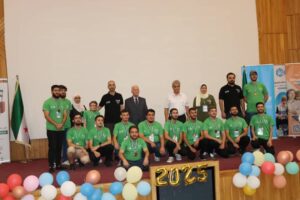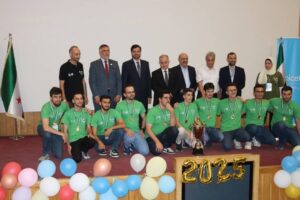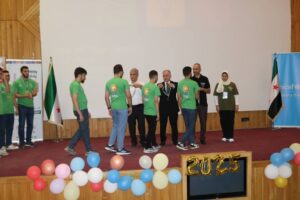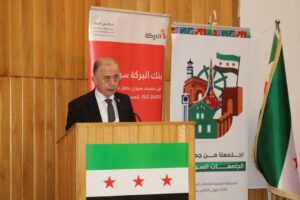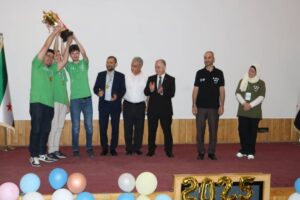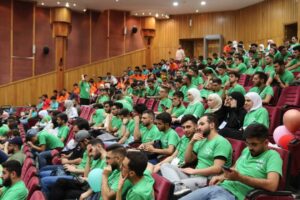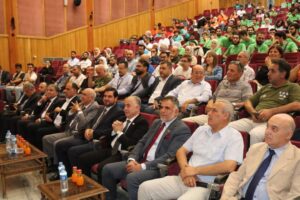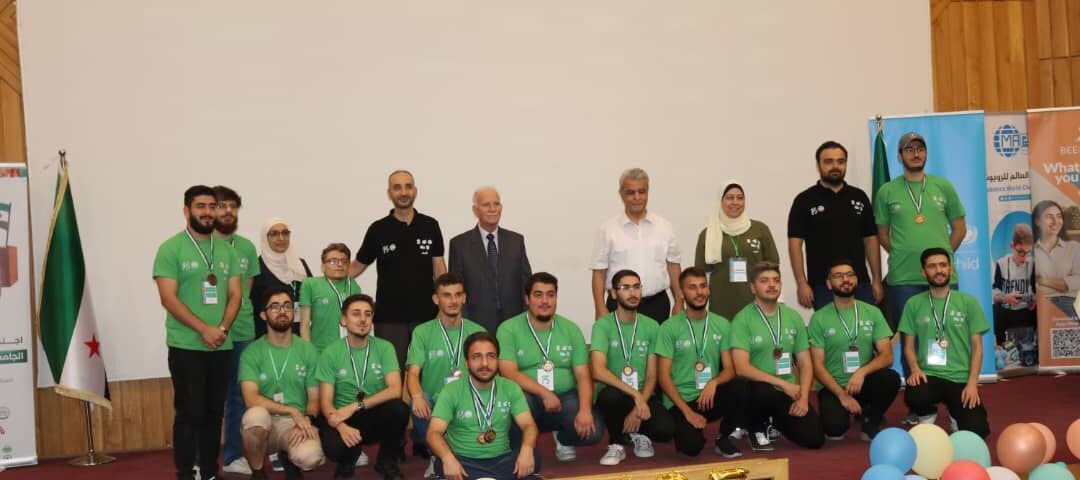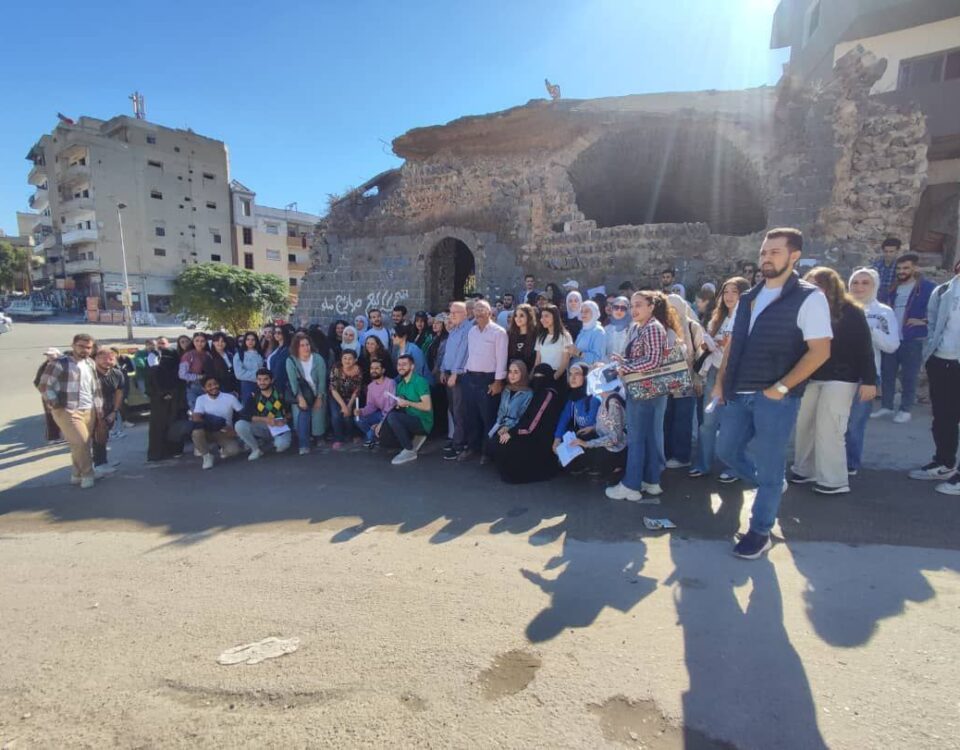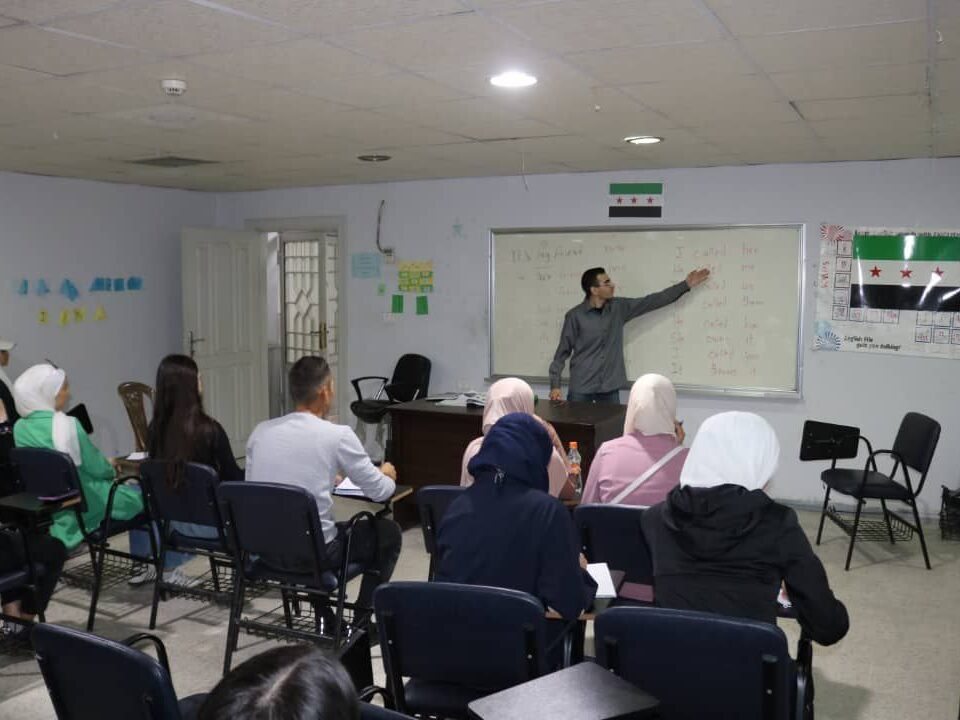The events of the 15th Syrian Collegiate Programming Contest (SCPC 15) concluded for 2025. This year, it was held simultaneously in three main centers: Damascus University , Homs University, and Al-Manara Private University, with the participation of 78 teams from 22 public and private universities , more than 320 contestants, 47 trainers, and 140 volunteers who contributed to the success of this prestigious scientific event.
The contest featured intense scientific competition lasting five continuous hours, as each team of three students works on a single computer to solve a set of complex programming problems, in accordance with the international standards adopted in international contests.
The team “Water Melon Juice Slayer” from Syrian Virtual University ranked first. Second place went to “Moz on Tree” from Homs University, while “Guess The Imposter” from the University of Aleppo secured third.
The silver medal went to the team (We don’t need a carry, just need to marry!) from the University of Aleppo in fourth place, the team (One last farewell) from the Syrian Virtual University in fifth place, and the team (Shhh, You’re In The Presence of Le Fish!) from Damascus University in sixth place.
The bronze medal was won by five teams: Mafeesh Akhbar 3n El Verdict?? from Homs University in seventh place, Already Retired from the University of Aleppo in eighth place, Chill Guys from the National Private University in ninth place, Black Hawks from the University of Damascus in tenth place, and Rfa3 wrong the samples are strong from the University of Aleppo in eleventh place.
Thirteen teams from Syrian universities have also qualified to participate in the regional programming contest for Arab and African universities, which will be held in Egypt.
President of Homs University, Prof. Tarek Houssam ElDeen, expressed his pride in hosting the 15th Syrian Collegiate Programming Contest. In addition, he emphasized that the outstanding performance and lively interaction witnessed by the university today reflects the creativity of the Syrian university students and proves the existence of promising talents deserving full support and attention.
